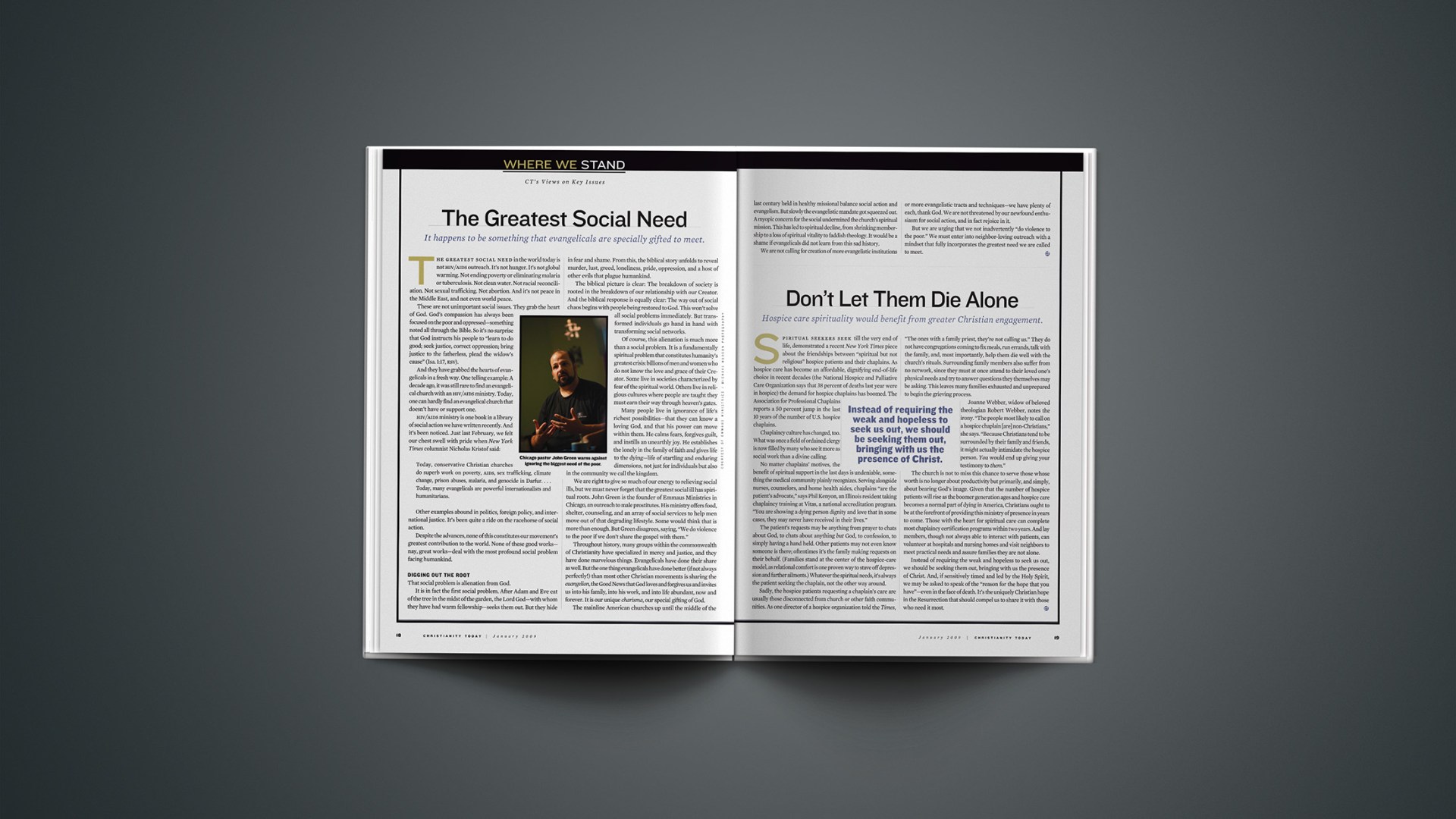Spiritual seekers seek till the very end of life, demonstrated a recent New York Times piece about the friendships between “spiritual but not religious” hospice patients and their chaplains. As hospice care has become an affordable, dignifying end-of-life choice in recent decades (the National Hospice and Palliative Care Organization says that 38 percent of deaths last year were in hospice) the demand for hospice chaplains has boomed. The Association of Professional Chaplains reports a 50 percent jump in the last 10 years of the number of U.S. hospice chaplains.
Chaplaincy culture has changed, too. What was once a field of ordained clergy is now filled by many who see it more as social work than a divine calling.
No matter chaplains’ motives, the benefit of spiritual support in the last days is undeniable, something the medical community plainly recognizes. Serving alongside nurses, counselors, and home health aides, chaplains “are the patient’s advocate,” says Phil Kenyon, an Illinois resident taking chaplaincy training at Vitas, a national accreditation program. “You are showing a dying person dignity and love that in some cases, they may never have received in their lives.”
The patient’s requests may be anything from prayer to chats about God, to chats about anything but God, to confession, to simply having a hand held. Other patients may not even know someone is there; oftentimes it’s the family making requests on their behalf. (Families stand at the center of the hospice-care model, as relational comfort is one proven way to stave off depression and further ailments.) Whatever the spiritual needs, it’s always the patient seeking the chaplain, not the other way around.
Sadly, the hospice patients requesting a chaplain’s care are usually those disconnected from church or other faith communities. As one director of a hospice organization told the Times, “The ones with a family priest, they’re not calling us.” They do not have congregations coming to fix meals, run errands, talk with the family, and, most importantly, help them die well with the church’s rituals. Surrounding family members also suffer from no network, since they must at once attend to their loved one’s physical needs and try to answer questions they themselves may be asking. This leaves many families exhausted and unprepared to begin the grieving process.
Joanne Webber, widow of beloved theologian Robert Webber, notes the irony. “The people most likely to call on a hospice chaplain [are] non-Christians,” she says. “Because Christians tend to be surrounded by their family and friends, it might actually intimidate the hospice person. You would end up giving your testimony to them.”
The church is not to miss this chance to serve those whose worth is no longer about productivity but primarily, and simply, about bearing God’s image. Given that the number of hospice patients will rise as the boomer generation ages and hospice care becomes a normal part of dying in America, Christians ought to be at the forefront of providing this ministry of presence in years to come. Those with the heart for spiritual care can complete most chaplaincy certification programs within two years. And lay members, though not always able to interact with patients, can volunteer at hospitals and nursing homes and visit neighbors to meet practical needs and assure families they are not alone.
Instead of requiring the weak and hopeless to seek us out, we should be seeking them out, bringing with us the presence of Christ. And, if sensitively timed and led by the Holy Spirit, we may be asked to speak of the “reason for the hope that you have” — even in the face of death. It’s the uniquely Christian hope in the Resurrection that should compel us to share it with those who need it most.
Related Elsewhere:
Christianity Today has previous editorials, more articles on life ethics, and a special section on death and dying.










